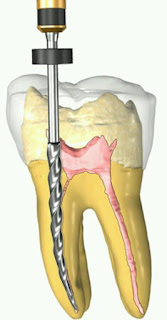Endodontic treatment
Endodontics is a branch of dentistry that specializes in the diagnosis and treatment of dental pulp and root canal-related issues. The dental pulp is the innermost part of a tooth, consisting of blood vessels, nerves, and connective tissue. When the dental pulp becomes infected or damaged due to decay, trauma, or other reasons, endodontic treatment is often necessary to save the tooth and relieve pain. The Texas City Dental in Texas City is conveniently located near La Marque, Galveston, and the Hitchcock area is conveniently located near the HEB and ROSS market complex. is the best option available and. is the best for any type of Dental Problem .
key aspects of endodontic dental treatment:
Diagnosis: Endodontic treatment begins with a thorough examination and diagnostic process. The dentist will assess the patient's symptoms, take dental X-rays, and may perform additional tests to determine the extent of the pulp damage and whether a root canal procedure is needed.
Root Canal Therapy: Root canal therapy, commonly referred to as a root canal, is the most common endodontic procedure. It involves the removal of the infected or damaged dental pulp from the tooth's pulp chamber and root canals. After cleaning and shaping the canals, they are filled and sealed to prevent further infection.
Endodontic Surgery: In some cases, standard root canal therapy may not be sufficient to treat the issue. Endodontic surgery, such as apicoectomy (removal of the tip of the tooth's root) or root-end resection, may be required to address complex root canal problems or persistent infections.
Restoration: After successful endodontic treatment, the tooth will need to be restored. This often involves placing a dental crown on the treated tooth to protect it and restore its functionality.
Pain Management: Endodontic procedures are typically performed under local anesthesia, which ensures that patients are comfortable and pain-free during treatment. After the procedure, some mild discomfort or pain is normal, but this can usually be managed with over-the-counter pain relievers.
Follow-Up Care: Patients should follow their dentist's instructions for post-treatment care and attend any recommended follow-up appointments to ensure the tooth heals properly. Endodontic treatment is crucial for preserving teeth that would otherwise need to be extracted.



Comments
Post a Comment